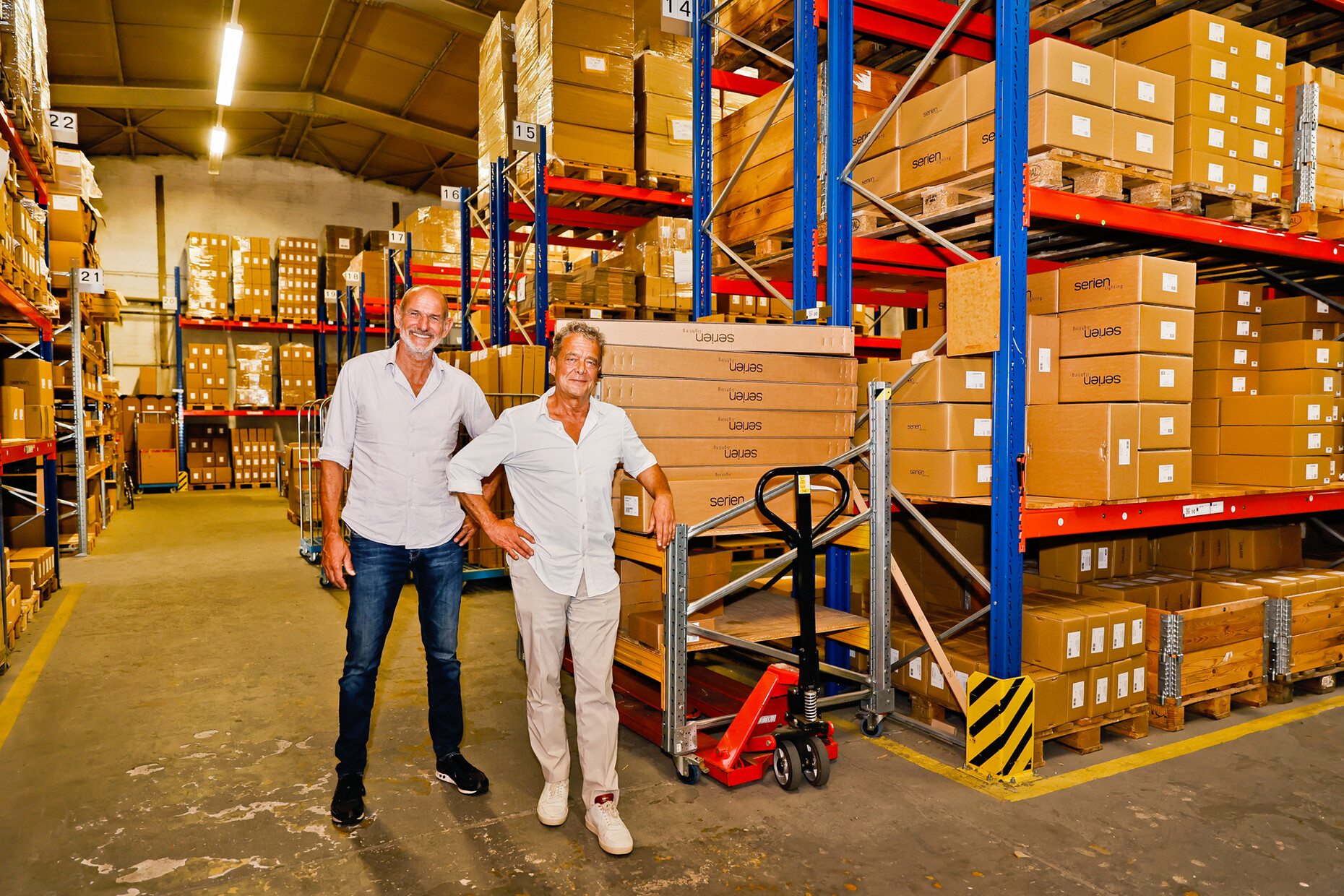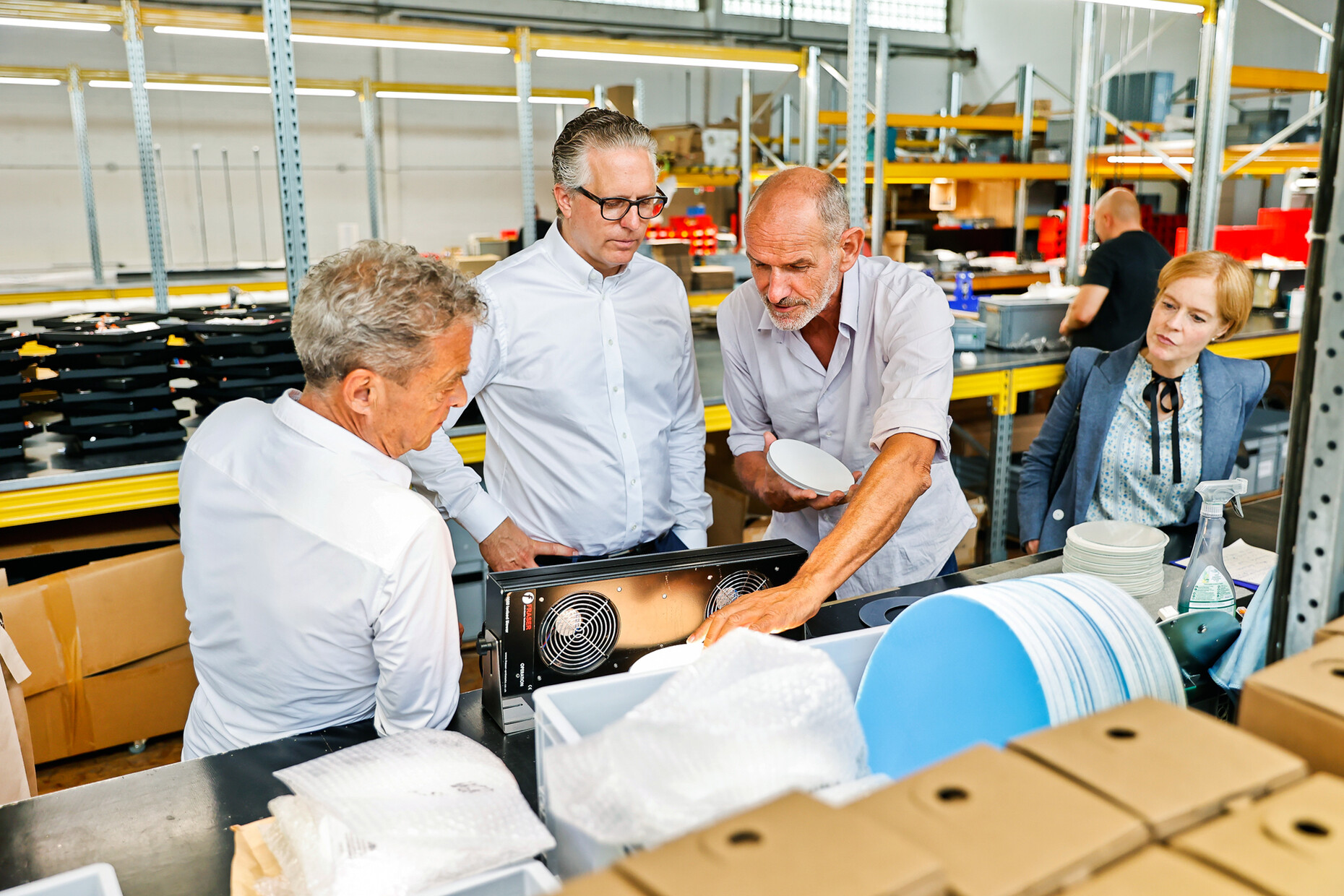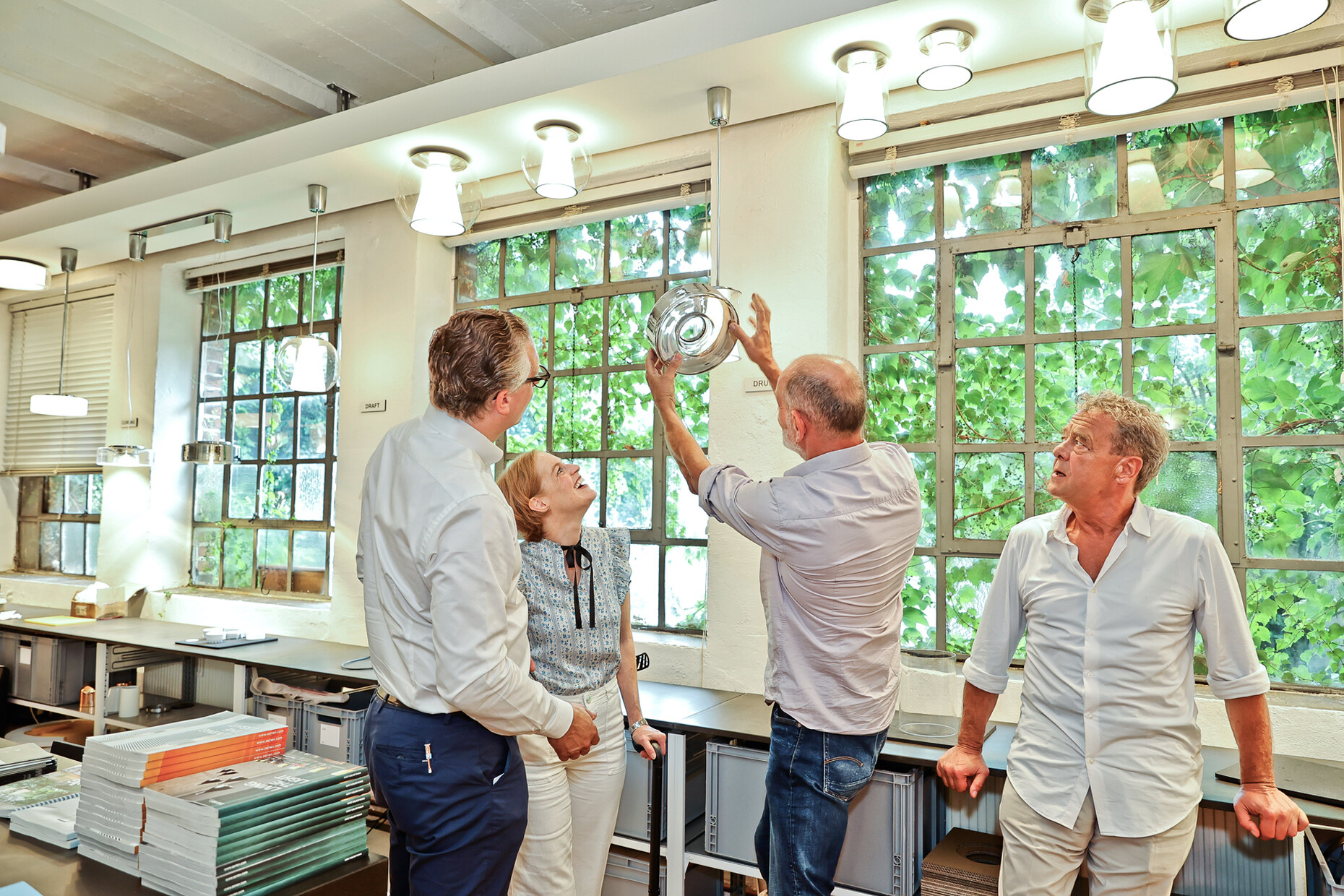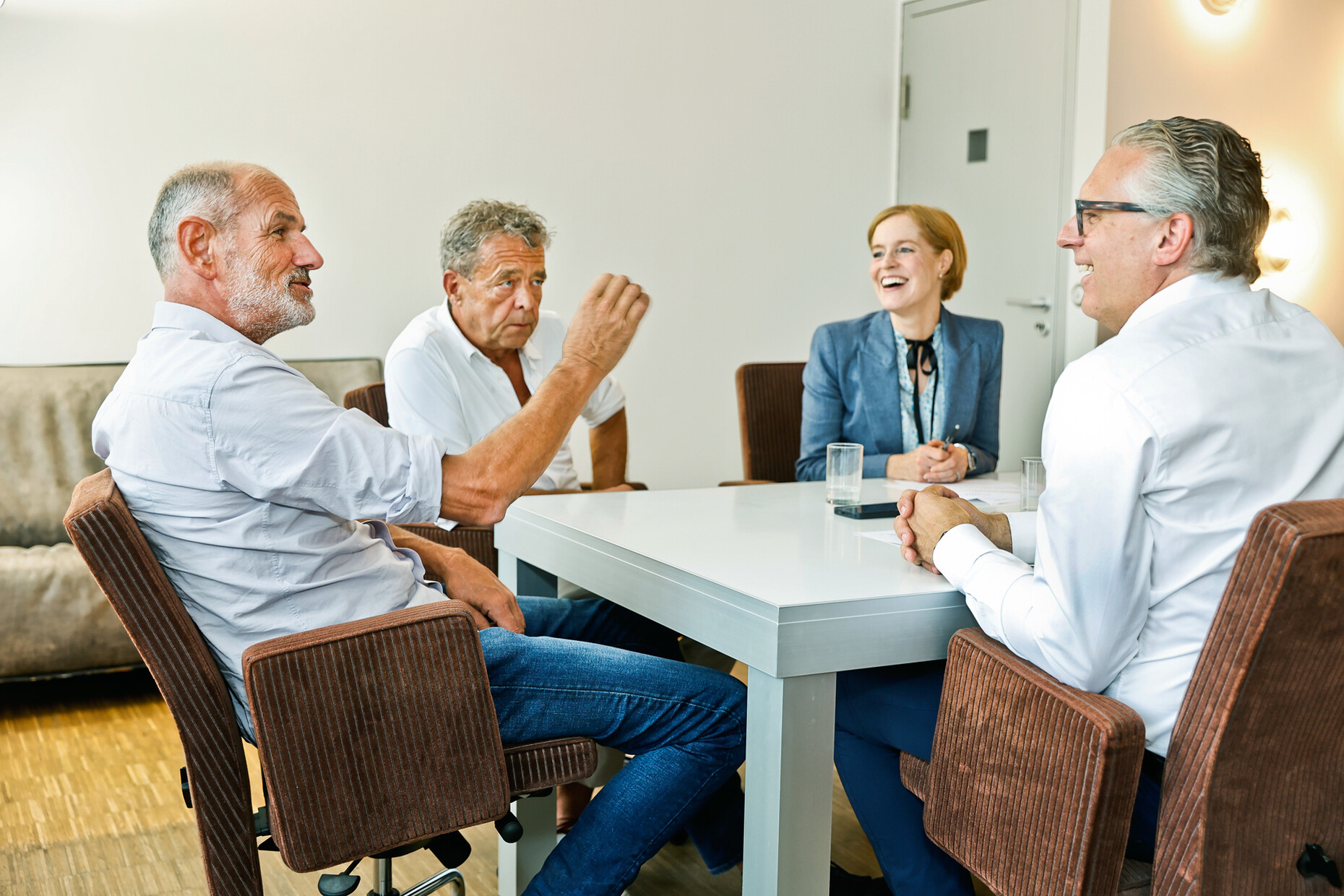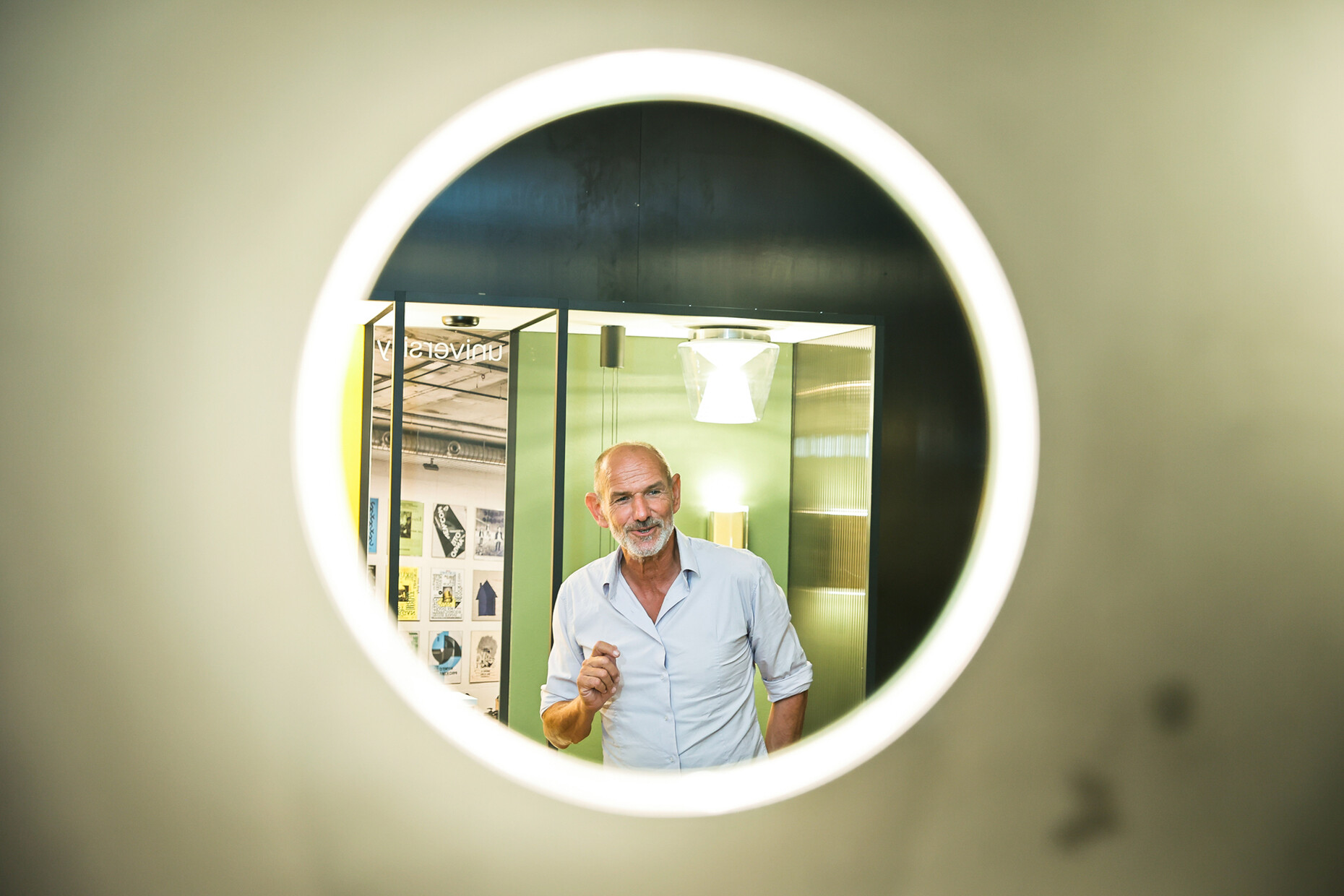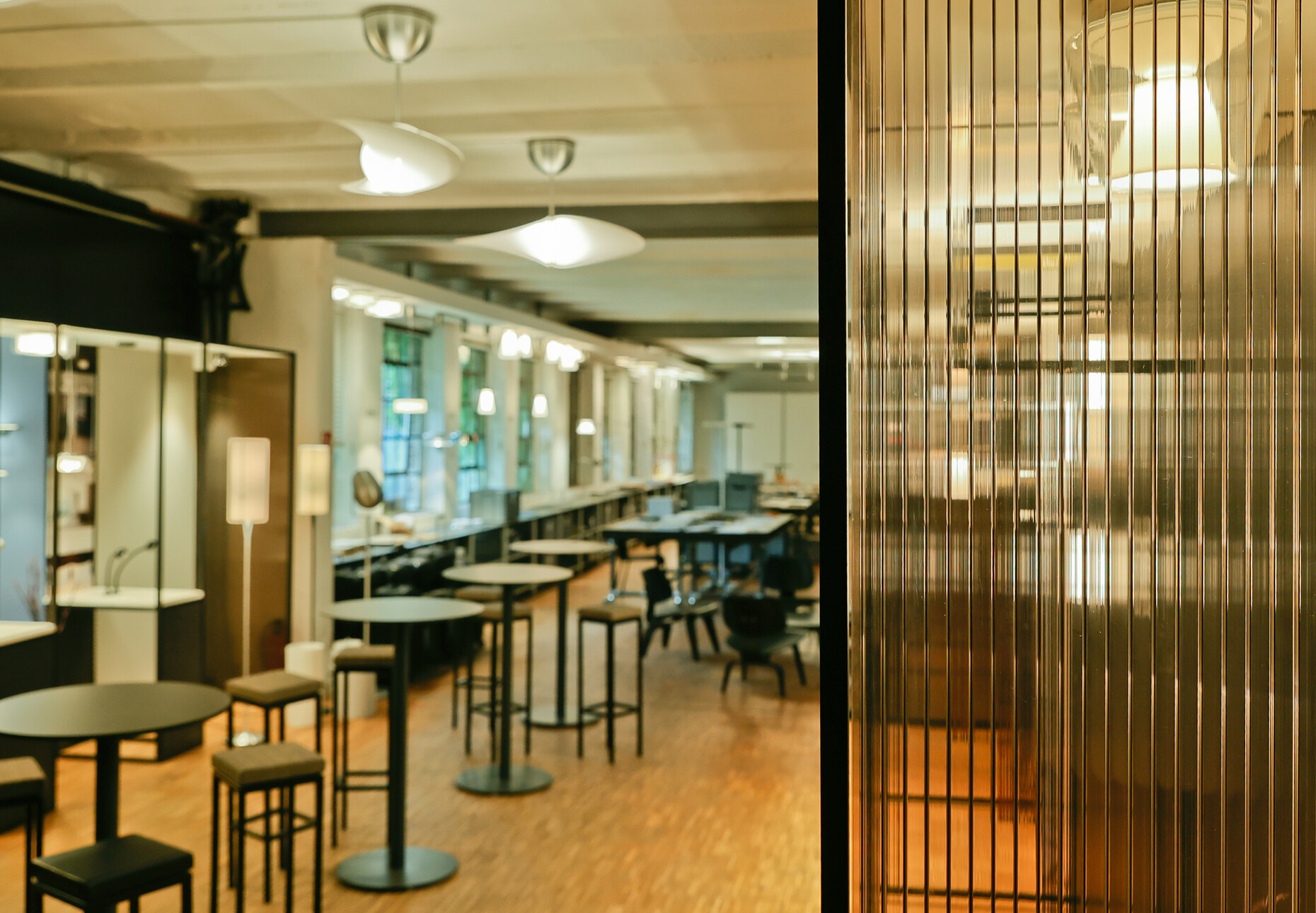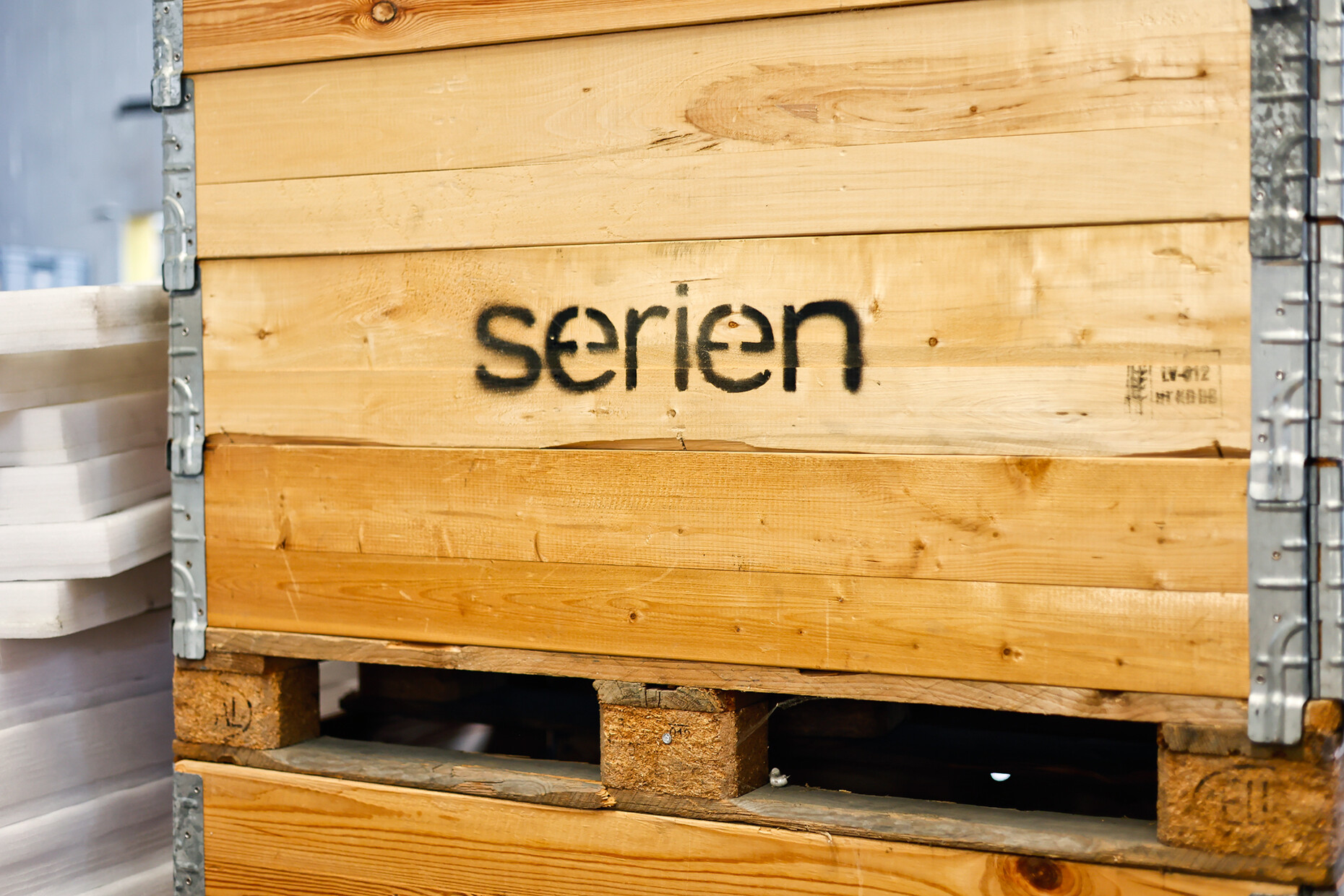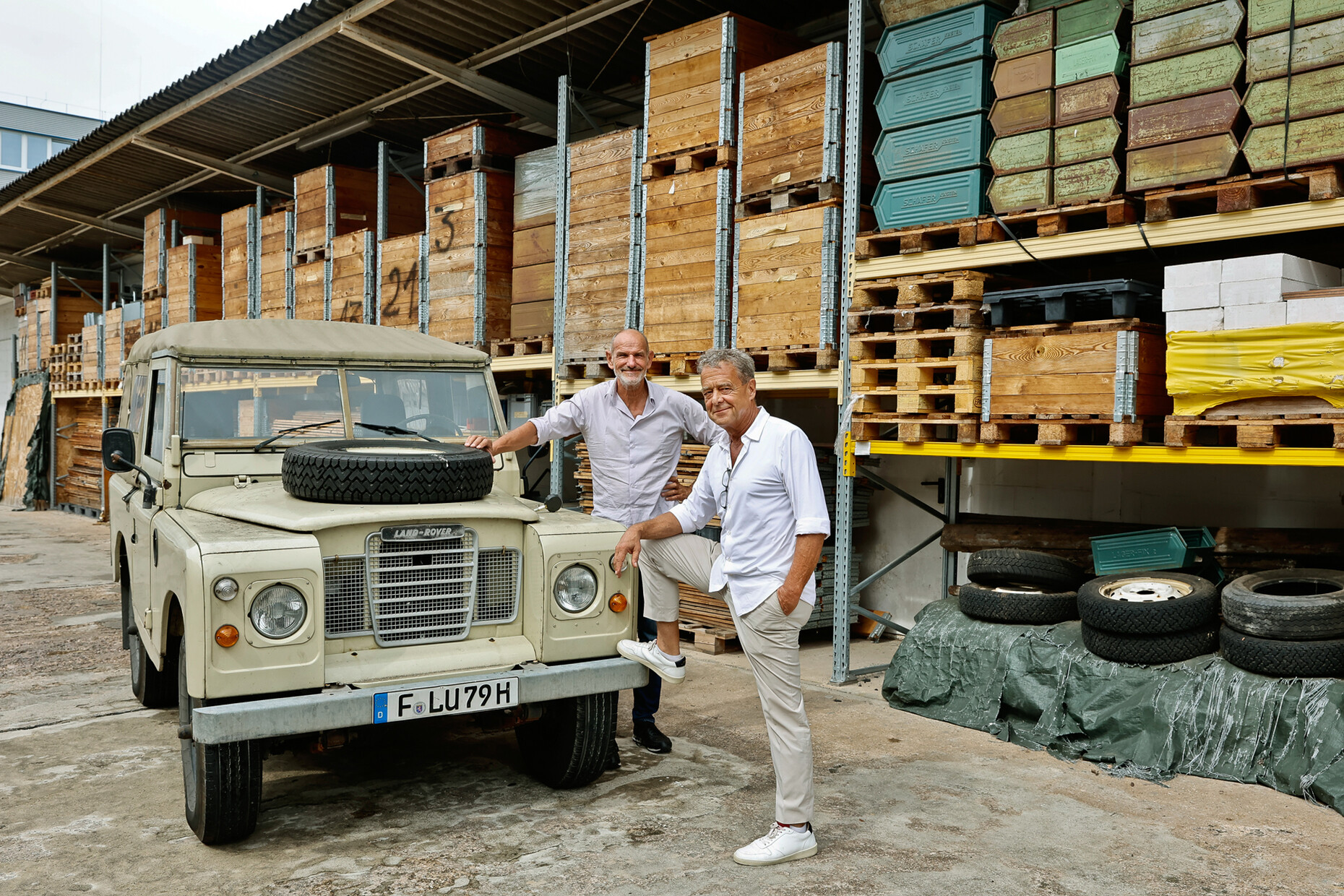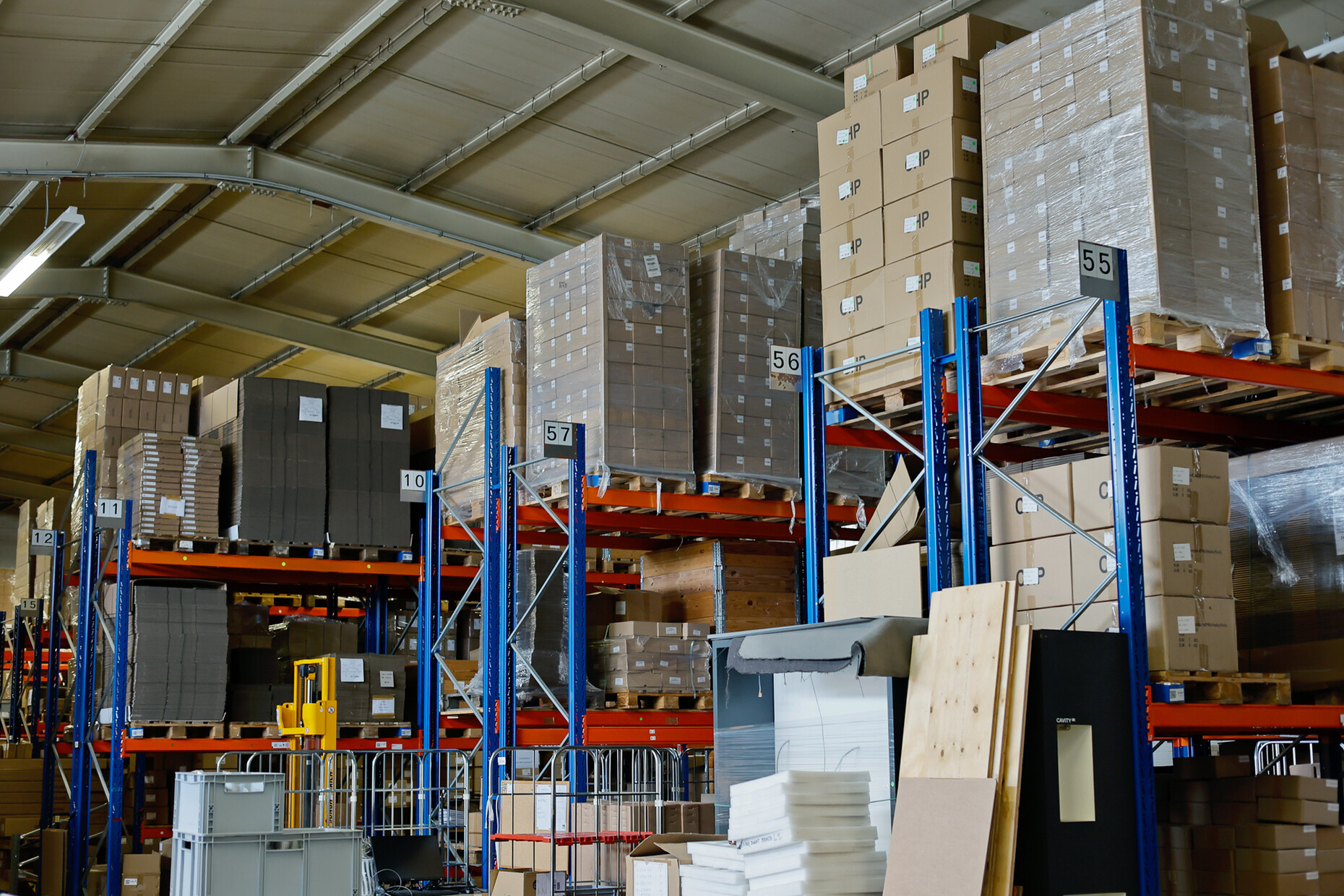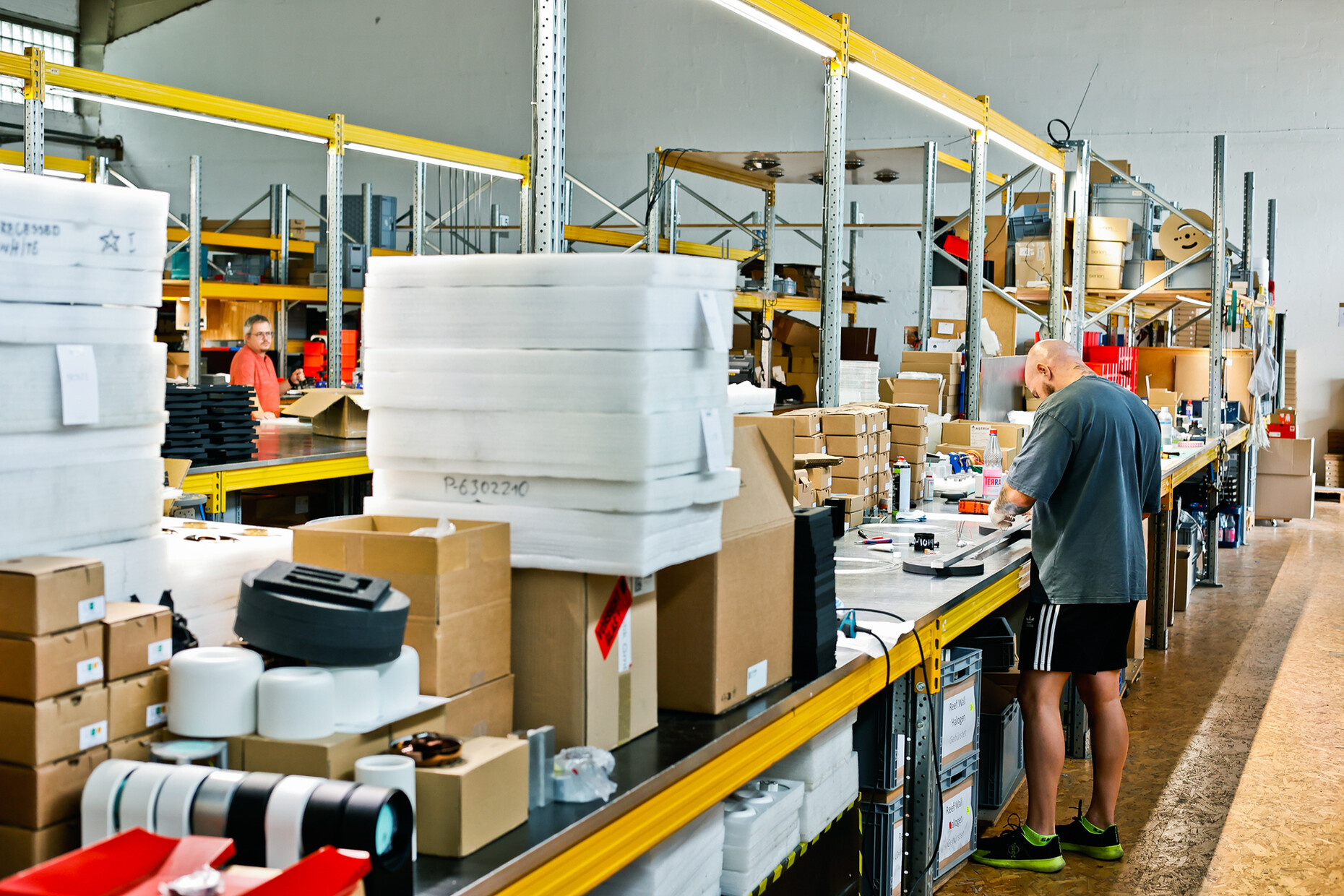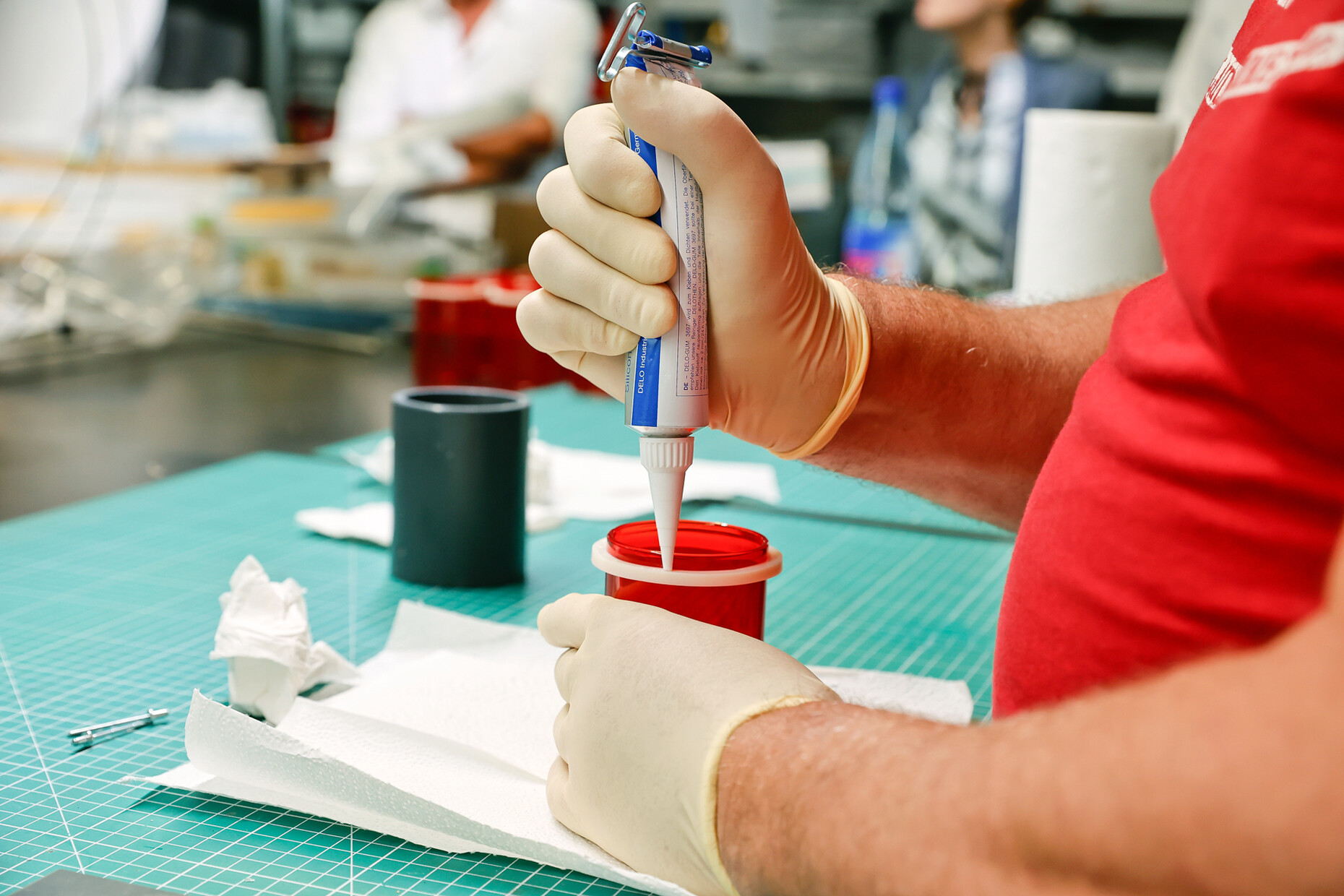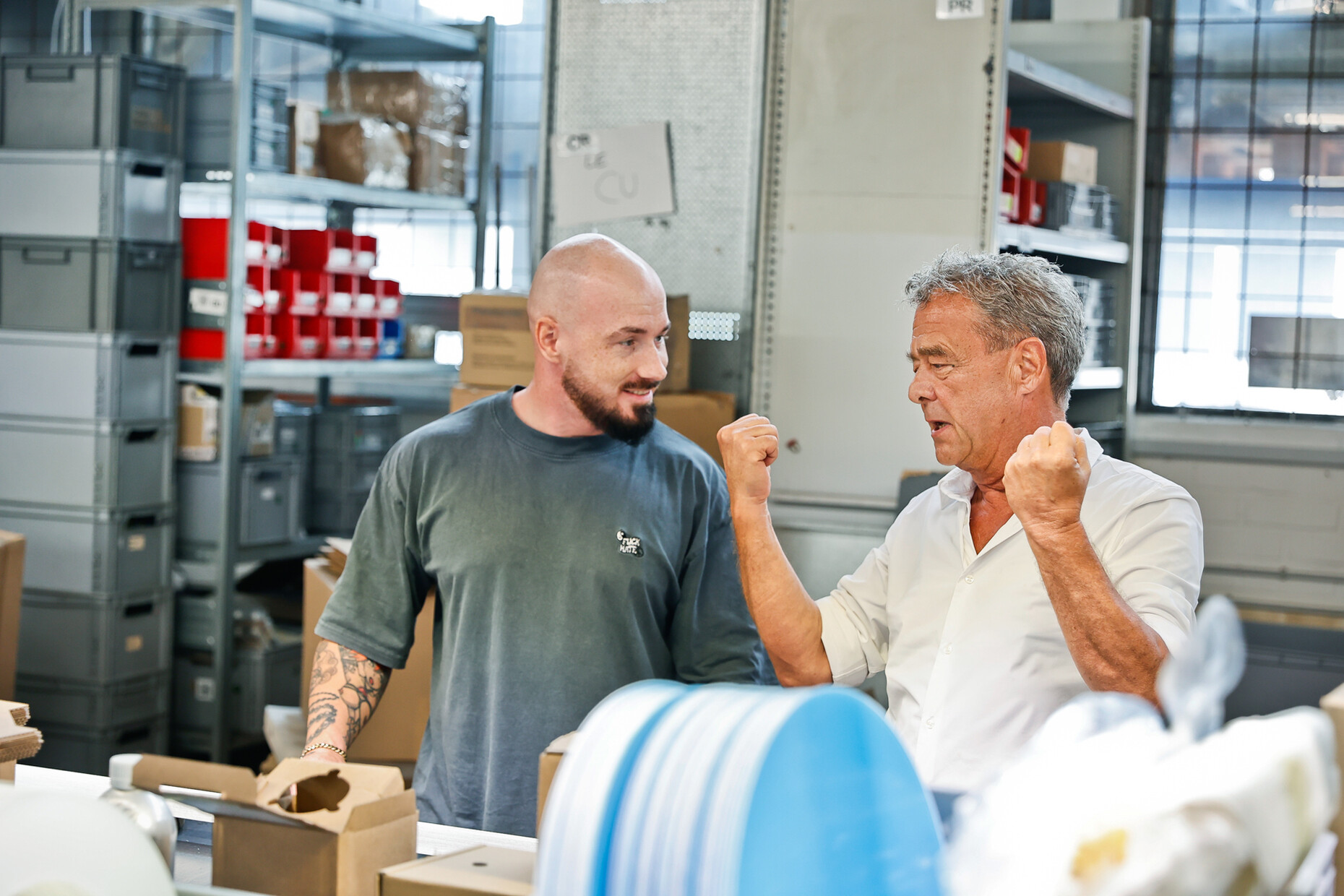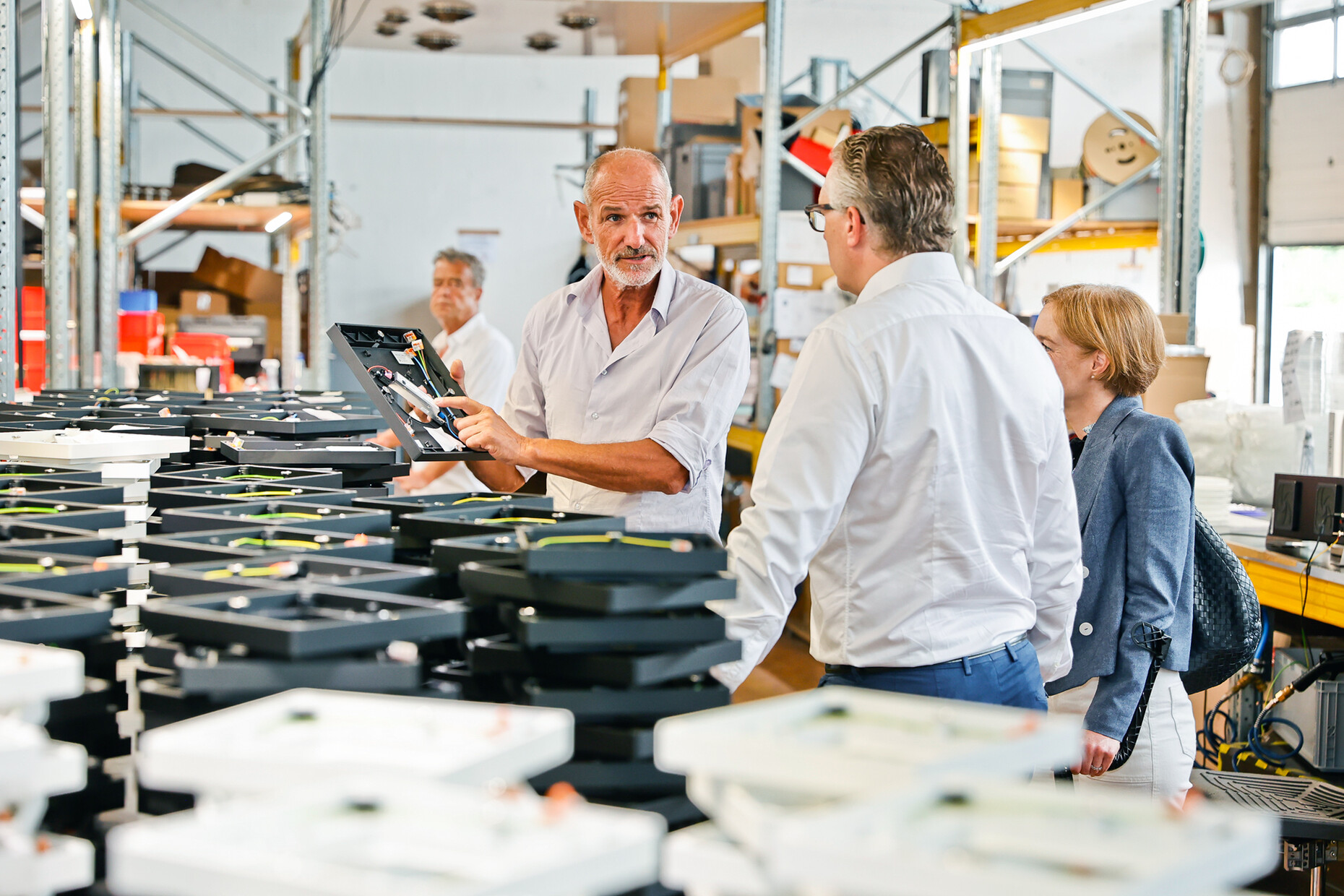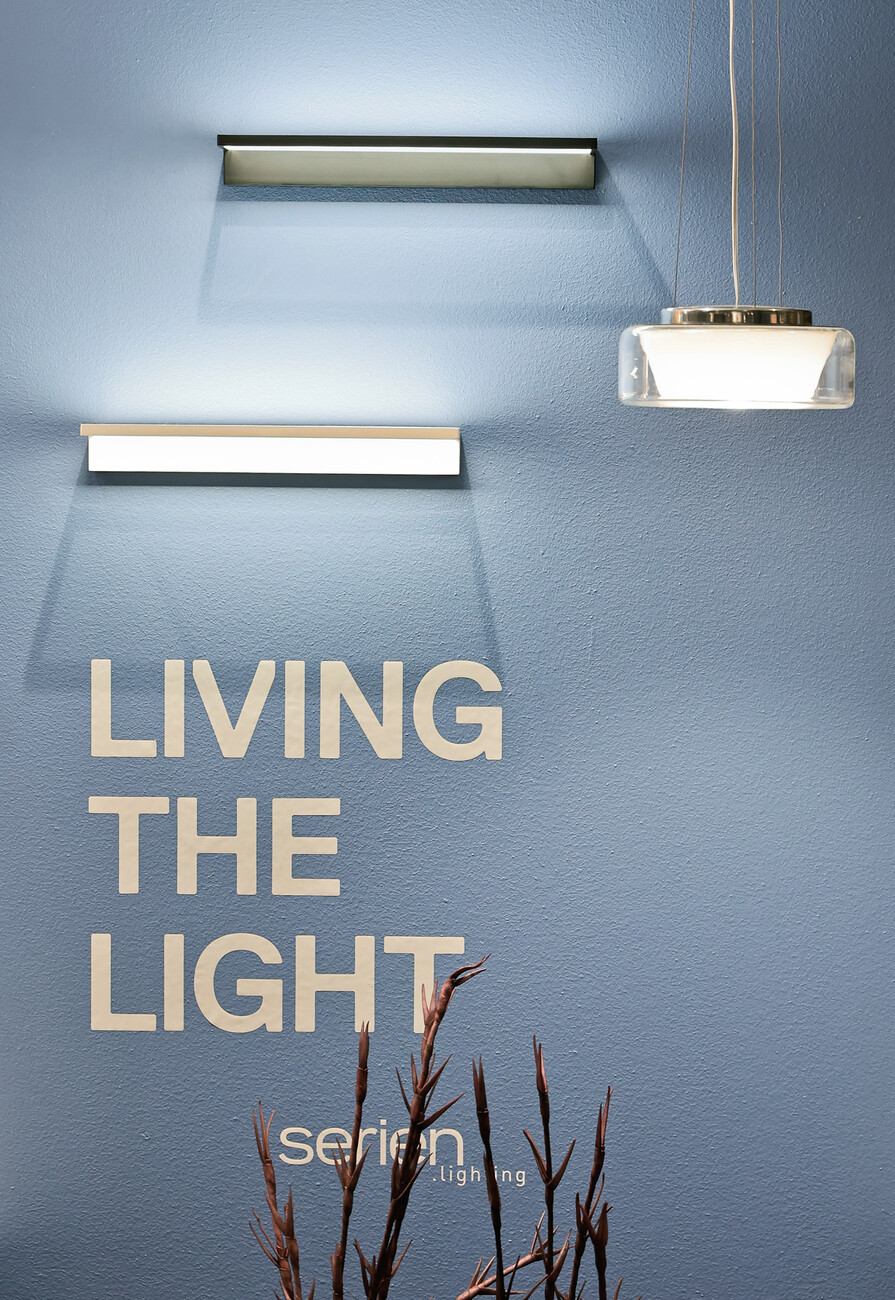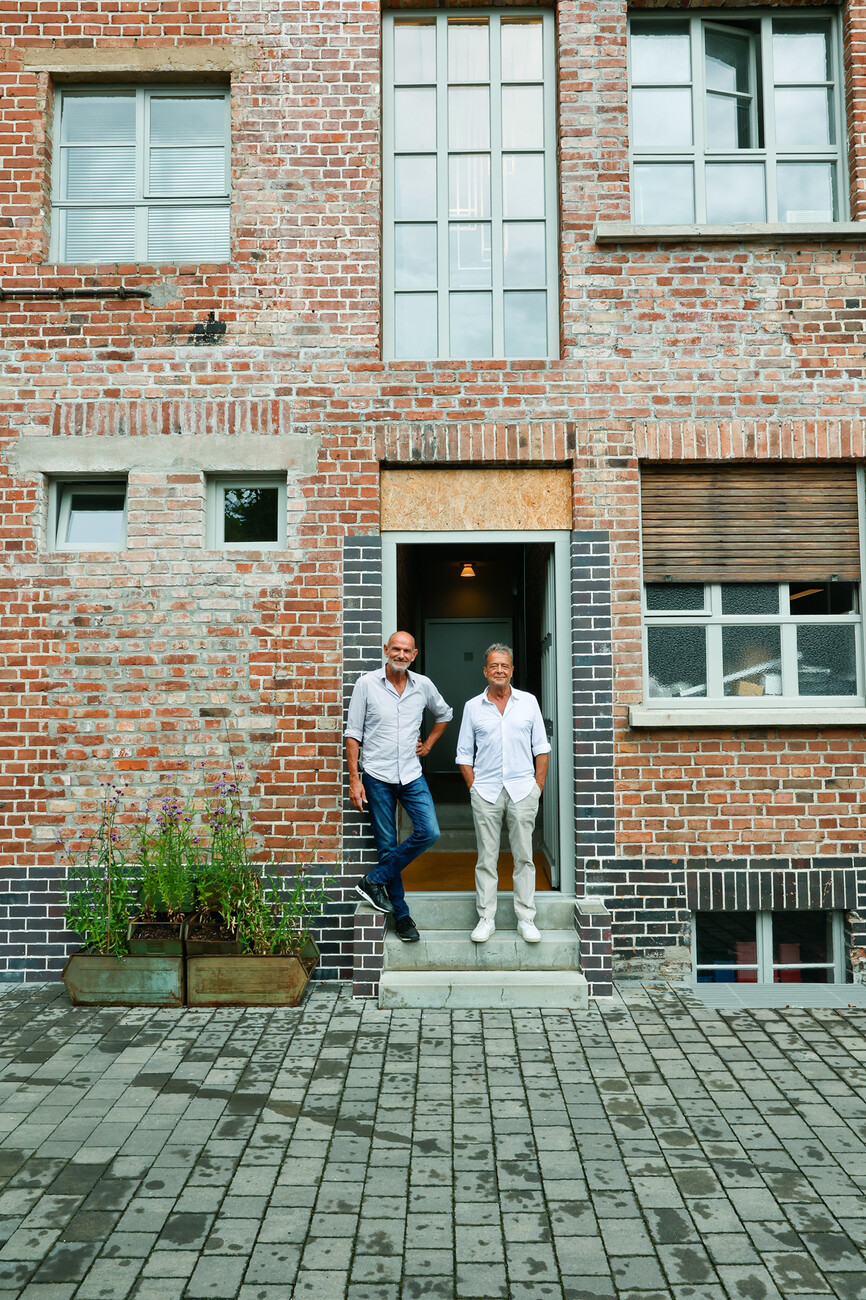Serialising Perfection
Robert Volhard: Some time ago, Stylepark celebrated the twentieth anniversary of serien.lighting with you. This year, you presented a very special exhibition at the Museum Angewandte Kunst in Frankfurt am Main to mark the fortieth anniversary. How does it feel to be able to look back on four decades of success?
Jean-Marc da Costa: It feels great! It is a huge honour to be invited by such a museum. It was also a interesting task to bring together things that we had never before combined in an exhibition concept. Manfred came up with the basic idea and wanted to treat all products from our company history, our children so to speak, equally in the show – whether successful or not. To this end, we have further developed our presentation system: These are filigree frames to which floors, walls and ceilings can be attached and which we have arranged in a grid.
Robert Volhard: Let's talk about the beginnings. I think it's very remarkable that you dared to set up a company while you were still studying at the HFG in Offenbach.
Manfred Wolf: Even back then, we knew that it would be a long-term project and would run for at least twenty or thirty years. So we don't find it particularly surprising that we have worked together for so long, but rather that we have survived all the technical developments that were not foreseeable. Banks have asked us to repay loans, for example, because they didn't think we would manage the switch to LED. So it's great that we've overcome these hurdles and that we've now been able to take the time to dig everything out for the exhibition. In the next step, we want to produce a book, a catalogue raisonné with the products of the last forty years, so that the knowledge is not lost at some point. Only we can do that properly.
Franziska von Schumann: Where did this entrepreneurial self-confidence come from?
Manfred Wolf: Through my father and my grandfather. They simply did what they did. Why should they stop?
Jean-Marc da Costa: We didn't worry about it and were extremely confident that it was the right way to go. What's more, we both had experience that benefited us. I had already earned money as a pupil and student by trading at flea markets. As a result, I had contact with traders from early on and later had no inhibitions about approaching them with our products. Directly, with something good in my hand, I was our own commercial agent.
Manfred Wolf: We knew that we had to get in at the top, with the top shops. The first was Stoll, a member of the CI Association, through whom we approached the association.
Franziska von Schumann: Jean-Marc, your father was an architect. Manfred, you "had to" work in your grandfather's metal workshop, where he made bag and suitcase fittings. And these premises served you for your first steps. To what extent did these circumstances make you what you are today?
Manfred Wolf: At the age of twelve, I was already "my father's slave", as I sometimes put it. My mother then cleverly sent me off to boarding school when I was fifteen so that I could get away from here. But these workshops with all the machines were very useful for us at the beginning. As my father used the electroplating shop during the day, for example, we couldn't start until 8pm and then galvanised all night long. As a result, we were already used to a high workload in the early years.
Jean-Marc da Costa: Production was very frustrating at times. A small run of 100 pieces was punched, welded, assembled and then galvanised. If an error occurred, the entire series could not be restored. There were major setbacks, but we learnt a lot in the process, for example about metal processing or surface treatment.
Robert Volhard: The "Lift Suspension" was created in the eighties, but did not follow the trends of the time. Instead, it is associated with Mies van der Rohe or Bauhaus and its stylistic elements. Did you consciously decide against the zeitgeist or where did the design idea come from?
Manfred Wolf: The "Lift" was inspired by the material that my father had lying around here, this round bar and the sheet metal. It's all still in the cellar.
Franziska von Schumann: Basically, one would say that your design language is rather purist, apart perhaps from the "Poppy" luminaire. How do you generally decide on the design language of serien.lighting?
Manfred Wolf: We've always been pretty minimalist. Even the "Lift" is not completely purist, it is indeed minimalist, but strictly speaking it is playful. We were and still are enthusiastic about Italian design from the sixties, such as the "Toio" by Castiglioni with its free transformer. The fan I designed in 1982 also had a free motor. This revelation still interests us today. In addition to the influence of Italian design from the shop windows in Frankfurt and Milan, there was of course a strong focus on the Bauhaus during our training at the HfG Offenbach.
Franziska von Schumann: Why have you decided to stick with this location here in Rodgau all these years?
Manfred Wolf: We actually have two locations: Product development and the entire administration with sales, accounting and marketing are based here. Plant two is a large rented warehouse in the industrial area. This is where final assembly, inspection, sampling in general and despatch also take place. Given the size of our company, it didn't make sense to give everything away. Basically, I am glad that we have only grown very moderately and have been able to keep all processes in our structure here – so we have everything under our direct control. My son works in the order processing department in the same building, so I am directly aware of any complaints we have. As a result, we always stay on top of things and are aware of our responsibility for the products we sell.
Robert Volhard: The fact that you are so close to the product also enables you to realise custom-made products. In collaboration with architects, you develop project-specific luminaires or variations of your standard products for hotels, libraries, churches, synagogues and hospitals.
Manfred Wolf: In addition to the advantages of local production, we can also be active as designers. It is certainly a speciality that we as owners have also been designers for this long. If we were managers, everything would be different: the company would certainly be bigger, there would be more activity in sales, we would be more active abroad and the focus would be on a different quality.
Jean-Marc da Costa: And if we had included investors, for example, which happens regularly in companies, many things would certainly be different, bigger.
Manfred Wolf: That's often where the problems come from: The investor wants something different from the designer. But of course we also have such necessities and then I take on the role of the investor and say that the market doesn't seem ready for a certain design. This sometimes leads to disputes, and as our designer Yaacov Kaufman, with whom we have worked a lot, always says: "Manfred, I have to tell you: Designers like to design." That's certainly true, and we initially thought so too.
Robert Volhard: In addition to Yaacov Kaufman ("Propeller"), you have also worked with Ulrich Beckert, Georg Soanca-Pollak, Peter Thammer ("Poppy") and Uwe Fischer ("Annex"), among others. What is it like for you to work with external designers and vice versa?
Jean-Marc da Costa: The more competent the partners are, the better the collaboration. Communicating as equals improves the development processes. We are always in the double role of designer and entrepreneur, but the decision as to whether a new product is produced is now made in favour of the entrepreneur. That's why we used to produce more flops. Today we are much more strategic, much more professional in such decisions and concentrate on products that we are pretty sure will sell. That is also one of the reasons for our current stability. I would like to do more design again, the customised products are always refreshing in that respect.
Franziska von Schumann: When is a customised order so exciting for you that you accept it?
Manfred Wolf: Basically, we always work with the same architectural firms. We have become specialists in synagogue lighting and are therefore contacted time and again. Having currently equipped eight synagogues, there is no one who has illuminated more synagogues with ritual objects than we have. We would be predestined for more projects, but we don't have the structure for it. Although they are interesting and a lot of fun, they are not financially lucrative. For example, we are currently renovating the synagogues in Darmstadt and Heidelberg, both of which date back to the 1980s. As a service, we are converting the chandeliers to LED, which earns us virtually nothing, and suggesting other lighting solutions that fit into the concept – then it also becomes economically interesting.
Robert Volhard: Your products are repairable, and you can make the generational transition to LED – sustainability par excellence.
Manfred Wolf: I just received an e-mail today: Two "Lift" lamps were purchased over 30 years ago that now flicker from time to time. "Can you help with that?" I was able to explain where the problem came from. The lights are now being sent to us. I recently had four of them here from Hamburg – now they are as good as new. I definitely enjoy repairing!
Franziska von Schumann: Where do you see the current challenges in the market?
Jean-Marc da Costa: Consumer behaviour has changed completely: One crisis follows the next. This depresses the mood and reduces the desire to consume. Nevertheless, there are many people who still have sufficient financial means.
Manfred Wolf: What's more, the next generation is travelling in a completely different way. They don't want a well-kept home, they want as little clutter as possible. So why lug around a floor lamp?
Franziska von Schumann: You weren't at Light + Building last year. How important were or are trade fairs for you? What impact did the coronavirus measures have?
Jean-Marc da Costa: Participation in trade fairs has tended to become less and less important for us and the price/performance ratio was unfavourable. Participation costs our small company a lot of money, around a quarter of a million euros. During Corona, we decided to make savings there. Finally, we sent out a good signal and took part in the October edition of Light + Building 2022 one last time as a premium design brand. Since then, we have maintained customer loyalty through in-house trade fairs.
Robert Volhard: What are the plans for your company in the next few years, your goals, hopes and wishes?
Jean-Marc da Costa: I think we are on a good course and will continue to maintain this balance between fun and stable figures for the next five years or so. We are not actively on the market to sell the company, but that will probably happen one day.
Manfred Wolf: If business goes much better than before, I would like to produce a few more beautiful designs that don't matter whether we sell them or not.
Franziska von Schumann: How did you both manage to combine friendship and work for so long?
Jean-Marc da Costa: I compare it to a marriage, which has perhaps already become beyond good and evil. It's important to make sure that you treat each other with respect and don't cross certain boundaries.
Manfred Wolf: We have a joint commitment. It was clear to both of us from the outset that we would go through with it together.
